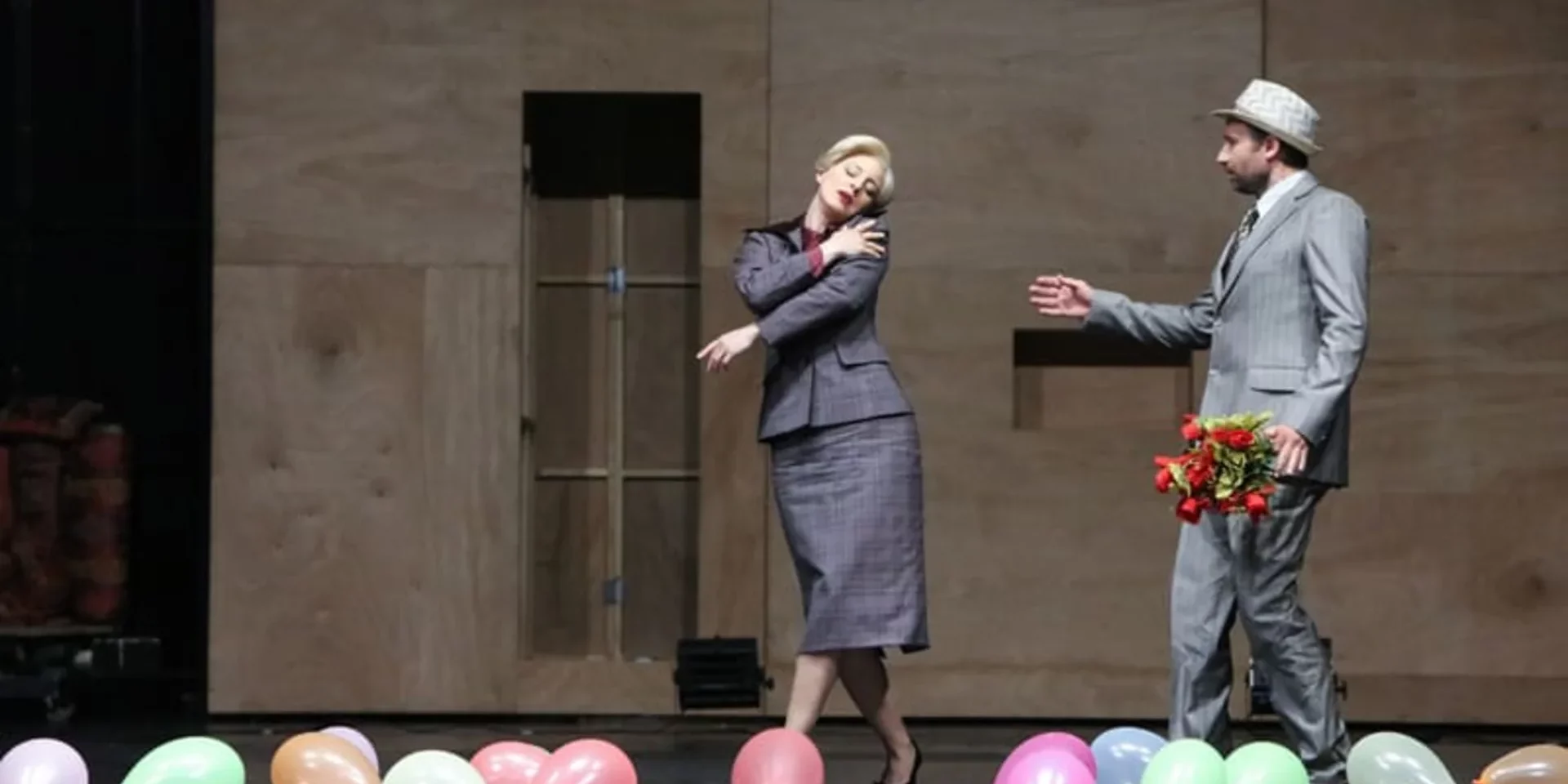As the year draws to a close, SEEstage’s writers across the region discuss the shows that made a lasting impression on them in 2022.
Rather than an attempt to select the ‘best’ shows of the past 12 months, these are the shows that have made a personal impact on our writers, the shows that have lingered in the memory.
Quicksand (National Theatre of Subotica)
Andrej Čanji
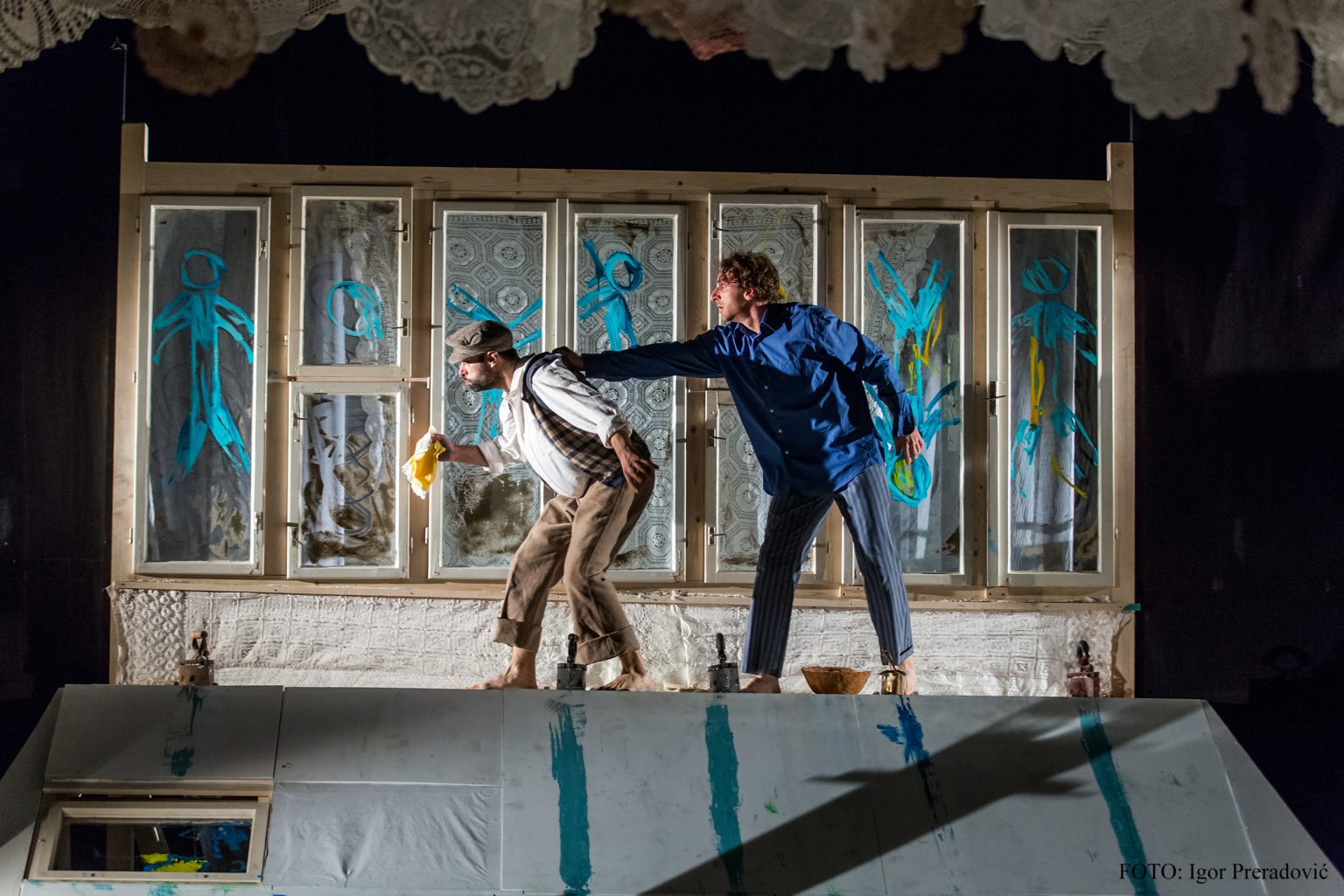
Zivi Pesak. Photo: Igor Preradovic
On the surface, there is nothing special about it. The performance is non-verbal and lasts only an hour, and I cannot clearly describe the development of the events. However, there is something magical about the production Quicksand, directed by Kinga Mezei at the Subotica National Theatre. She has created a small, intimate and warm play from the motifs of the poetry of a local poet and the art of a local painter. Featuring interesting original music, the stage resembles an attic or studio that serves as a canvas for the actors to apply paint with brushes, irons and a bicycle. Costumes and other details bought in antique shops make this play a true Vojvodina rhapsody.
The performance is full of details. The overall atmosphere achieved by organising the little things just makes me happy and fulfilled. For some time, the most important thing about theatre for me is the meaning, the political commitment and the precision it expresses.
Everything that Quicksand does is the opposite. With that performance I have been reminded that the purely aesthetic function of art, freed from everyday political entanglements, has an important place in the world.
Our Son by Patrik Lazić (Heartefact)
Borisav Matić
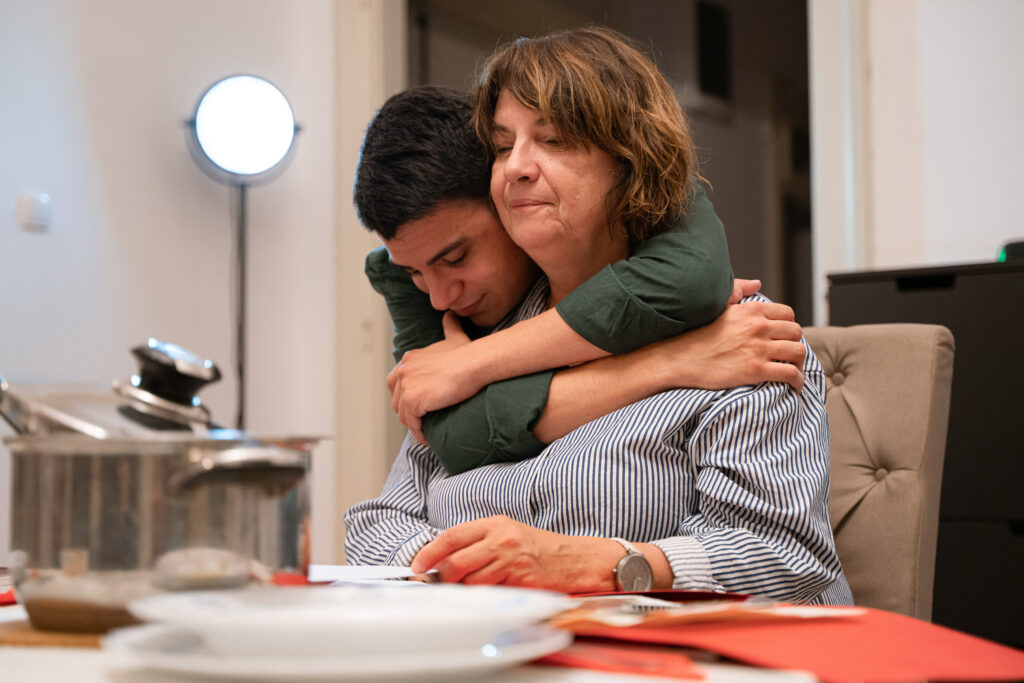
Our Son – Heartefact
Our Son is an introspective, honest and deeply personal performance by the emerging theatre director Patrik Lazić that captivates the audience with its emotional storytelling. Lazić draws inspiration from his own childhood and coming of age and creates this authorial project as a family drama about a gay son who visits his homophobic parents in order to reconcile with them. In a different setting, this could have been a typical post-coming-out story about a rejected son but Lazić inverts the narrative by putting the main character in control of the story.
The whole show is actually a performance within a performance where the son is a director who gathers his parents to recreate their family story. He carefully listens to everything they have to say (including their suggestion to “cure” him of homosexuality) but he is the one who makes the decision in the end – if the parents don’t want to accept him for who he is, then they have to come with terms of losing their son while he continues with his life.
The acting in the performance is a strikingly realistic portrayal of the three characters – Amar Ćorović as the son, Dragana Varagić as the mother and Aleksandar Djindjić as the father. A cherry on top is the clever use of space as the audience sits close to the performers and the stage light encompasses them together. It’s as if the audience is a part of this partly uncomfortable, partly sentimental family gathering.
Review of Our Son
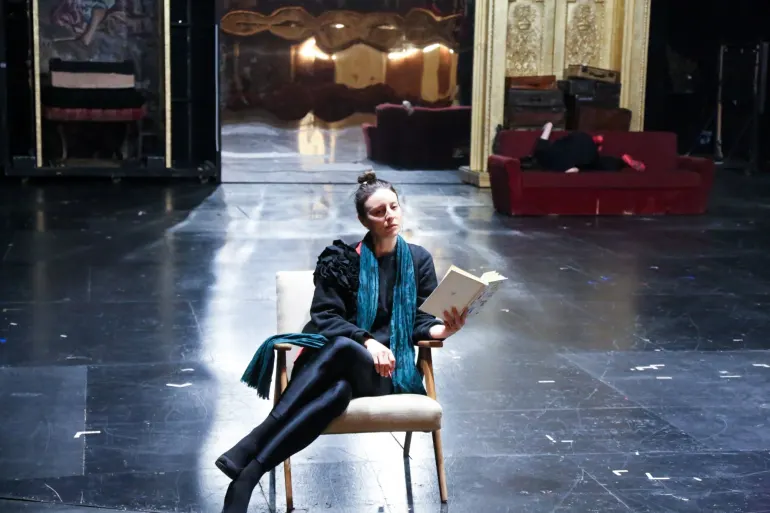
Sorry, HNK Zagreb
Sorry (HNK Zagreb)
Nora Čulić Matošić
This June, by the end of the theatre season before summer break, at the Croatian National Theatre in Zagreb, the audience was treated with a delightful play Sorry directed by Bobo Jelčić. The plot of it is inspired by the film and bestselling novel Peyton Place, a melodrama based in a made-up little American town where everyone know everything about each other.
Jelčič, however, directs his attention to actors performance who play archetypal melodramatic characters ridiculing and making a caricature of them. Likewise, it’s a metatheatrical piece – the actors and stage manager casually break the fourth wall speaking to the spectators and acknowledge the fiction they all are acting in. This is also further demonstrated by the scenography and scene appearance, it’s stripped naked at the beginning, removed from the backdrops which traditionally conceive the backstage.
The biggest strength of the play is the acting; Jelčić has managed to bring the best out of each of the actors as it seems they portray their characters with such ease on the stage while enjoying running around the almost empty scene. There is a political aspect of it too, where the American and Croatian topos meet half way in terms of media everyday life, filled with tacky sensationalism.
The Handke Project (Qendra Multimedia)
Florida Kastrati
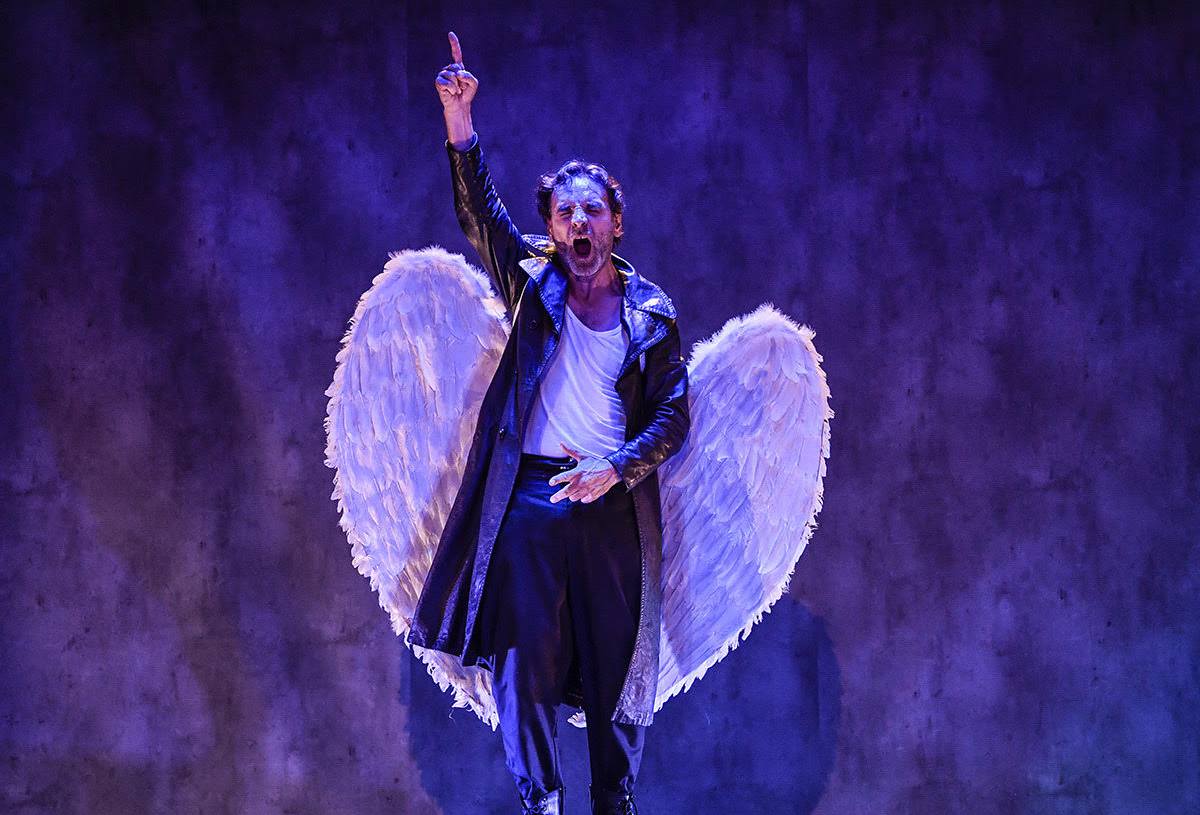
The Handke Project
The show that stood out above the others in 2022 is The Handke Project, directed by Blerta Neziraj and written by her husband Jeton Neziraj. I will long remember this show for its audacity and its honesty in the position it takes as it goes deep into the work and world of Nobel-winner Peter Handke, and, most importantly, portrays to its audience a naked view of Handke’s support of Slobodan Milosevic, a war criminal. The play is full of references to Handke’s writings perfectly stitched together.
On a more basic level, this drama made a huge impact on me by highlighting a truth that we often forget. That humans are capable of both good and evil, and something in between too – but when one dominates, it is hypocritical for institutions to try and justify the ugly side of humanity in the name of “literature”.
Feature: Making The Handke Project
Review of The Handke Project
All Adventurous Women Do (Atelje 212)
Mina Milošević

All Adventurous Women Do at Atelje 212
The show that had the greatest impact on me this year is All Adventurous Women Do, written by Tanja Šljivar and directed by Selma Spahić. I spent this year researching the subject of female friendships in Serbian contemporary plays and Šljivar’s play is one of the greatest examples of the depiction of a female group of friends, who are so bound together that they are like one person, one body with multiple extremities.
Inspired by a true event about a group of teenagers who become pregnant, it’s a very clever and surprisingly funny text that gives the voice not only to the girls – who never got the chance to speak for themselves, instead everybody else judged them – but it also has some really interesting ways of speaking, we hear the voice of foetus, from one girl’s navel piercing, from the doctors of the pregnant girls. And Spahić’s direction really deals with the Bosnian context. The expressionistic elements in combination with the youthful euphoria of the girls singing Taylor Swift’s 22 in blue disco costumes are an image that I’ll always remember.
Interview with Tanja Šljivar
Review of All Adventurous Women Do
World Without Women (BITEF/Center for Cultural Decontamination)
Natasha Tripney
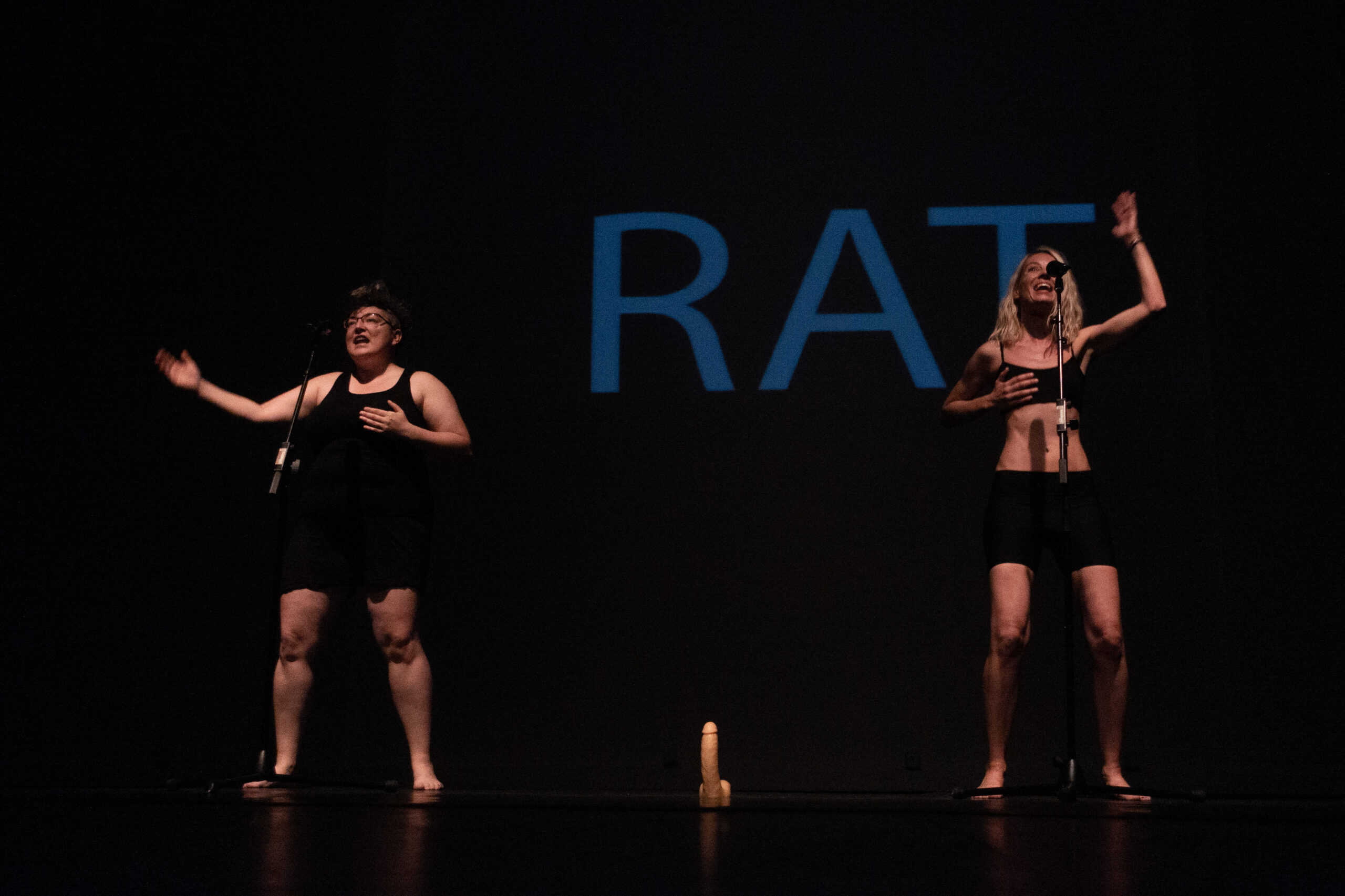
Olga Dimitrijević and Maja Pelević in World Without Women. Photo: Jelena Janković
I am a sucker for numbers. Olga Dimitrijević and Maja Pelević’s World Without Women begins with a presentation of data about representation in Serbian theatre – how much work by women is actually being programmed and where? Wearing football kits as a fuck-you to Frank Castorf and his antediluvian views on women making theatre (and playing football), the pair use this information as a springboard for an impressively layered show that simultaneously diagnoses, dissects and enacts the messy interplay between art and capitalism, the pressure on artists to constantly self-promote, our complicity in our own self-exploitation, driven to work unsocial hours for love of the art. It also explores the art itself, the tropes and approaches of theatre artists.
Whether engaging in competitive goal-scoring or being ‘directed’ by an invisible male voice into assuming various uncomfortable poses, Dimitrijević and Pelević make a great stage double-act and the show is at once bitingly funny and etched with frustration about the impossibility of disrupting the system while stuck inside it. It ends with Dimitrijević deciding to stop trying, to do something else instead, in the case of this show, to make pancakes for the entire audience, a gesture that is as generous as it is eloquent, inviting the audience to share the stage, to stand together as one.
Interview with Olga Dimitrijević
Review of World Without Women
Afterloss (Teatri Oda)
Bora Shpuza
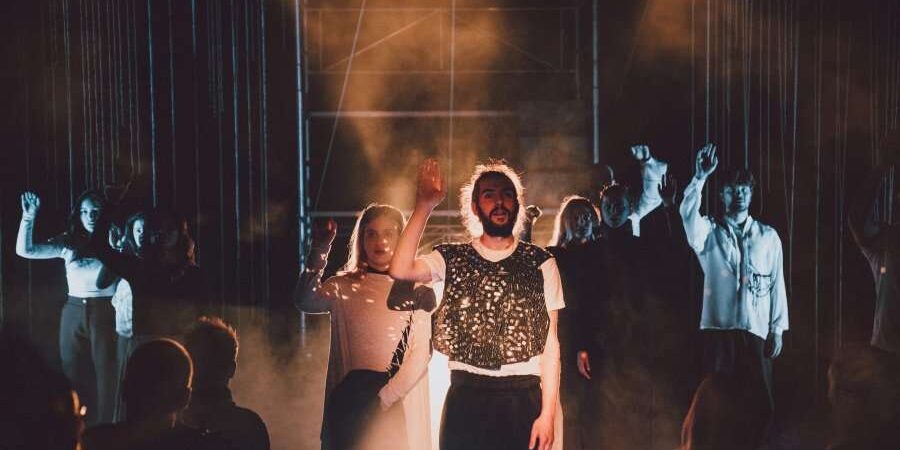
Afterloss, Teatri Oda
The play that most impressed me in 2022 was Afterloss, because it gave us the unfiltered version of loss, pain, grief and closure. It’s a deeply human process that brings out unexpected sides of ourselves; it comes without instructions. The stages and steps we go through, the support circles and loneliness, all of this was covered in Afterloss – a package in multi-layered wrapping. We all gain and lose through life, and we seem inclined to suffer the losses more than enjoy the gains. Many of us bury the pain, hoping it will go away, but instead it turns into resentment and bitterness. That is why it’s very important to deal properly with loss. The acting and choreography in Florent Mehmeti’s show were all very smooth and the finale felt very relatable. The stage was full of life – symbolizing hope.
Main image: Sorry (HNK Zagreb)
Natasha Tripney is a writer, editor and critic based in London and Belgrade. She is the international editor for The Stage, the newspaper of the UK theatre industry. In 2011, she co-founded Exeunt, an online theatre magazine, which she edited until 2016. She is a contributor to the Guardian, Evening Standard, the BBC, Tortoise and Kosovo 2.0

